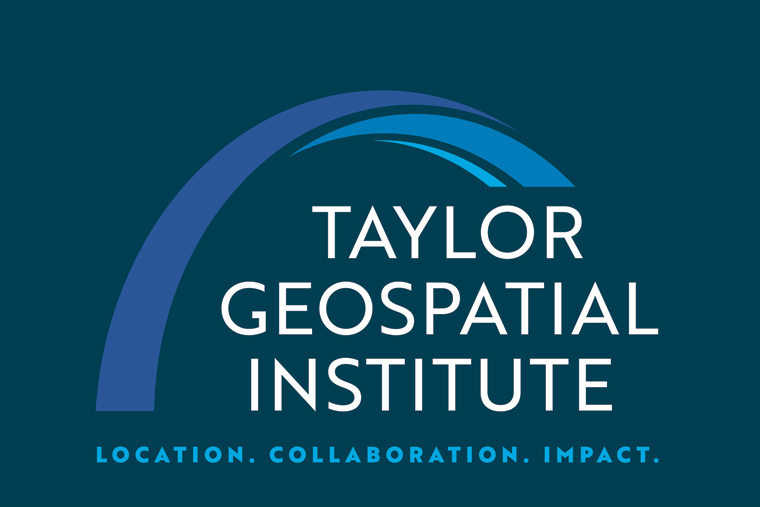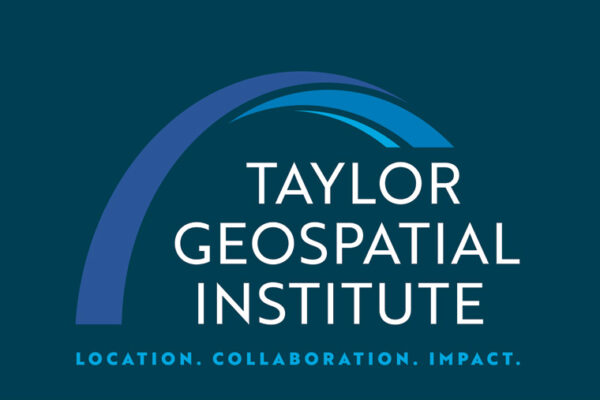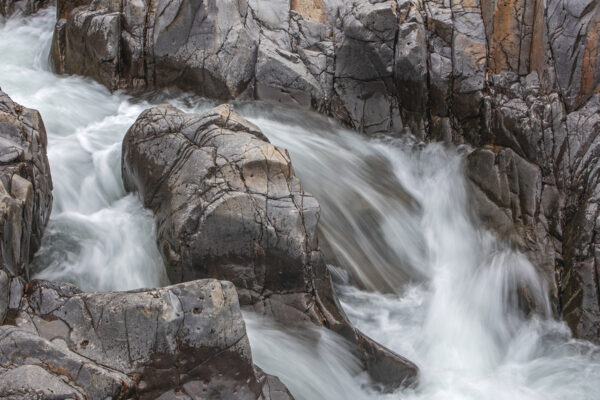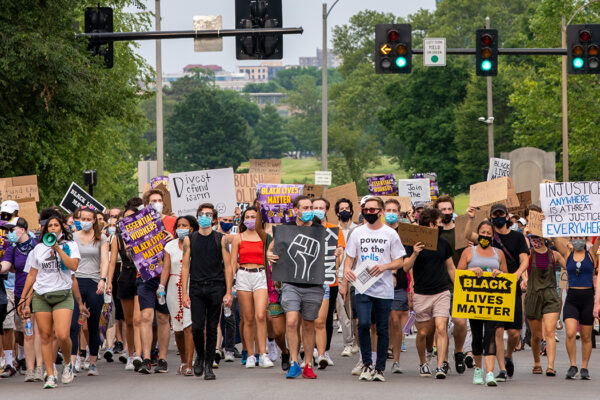Several Washington University in St. Louis faculty members and graduate or professional students received seed grants and other funding from the Taylor Geospatial Institute, collectively totaling more than $950,000. The funding is designed to encourage collaborative research and provide resources to advance geospatial science through innovative projects.
Washington University in St. Louis is a charter member of the Taylor Geospatial Institute, which draws on the distinctive strengths and state-of-the-art computing infrastructure of eight research institutions to launch innovative, cutting-edge research programs that make a positive impact. The institute is based at Saint Louis University.
“For much of the research at Washington University, whether it is environmental health or climate impact on biodiversity, geospatial analysis is fundamental to understanding the problems and creating the solutions,” said Aaron Bobick, dean and the James M. McKelvey Professor of the McKelvey School of Engineering at Washington University in St. Louis, when the institute was founded in 2022. Bobick is a member of the institute’s governing council.
Faculty members in various disciplines in Arts & Sciences, the McKelvey School of Engineering and the School of Medicine have received funding in the initial round of Geospatial Institute Seed Grant Program to stimulate Collaborative Research (GISCoR) grants.

Chief among them is Kim Medley, director of Tyson Research Center, Washington University’s environmental field station in Eureka, Mo., and Rachel Penczykowski, an assistant professor of biology in Arts & Sciences. They received $200,000 for their development research project, “Integrating downscaled climate models with in-situ measurements to investigate fine-scale urban environmental heterogeneity.”
Medley and Penczykowski will use on-the-ground and remotely sensed data to model the St. Louis climate with unprecedented levels of precision. The project will clarify climate variations throughout the region and provide a baseline to help future researchers track climate trends in St. Louis and beyond.
“We aim to improve predictions of climate at spatial scales that are relevant to humans, animals, and plants across the metropolitan area,” Penczykowski said. “Understanding how fine-scale variation in the natural and built environment contribute to differences in climate is essential for making informed climate decisions that promote human health, well-being and environmental justice.”
Washington University’s participation in the Taylor Geospatial Institute focuses on digital transformation and research excellence, both of which are key aspects of the research pillar of the university’s strategic plan, “Here and Next.” The plan also includes a focus on being a good neighbor in, with and for the St. Louis region, and the interdisciplinary work underway through the Taylor Geospatial Institute, both among faculty at WashU and with those at partner institutions, is another way to put the plan’s ideals into concrete action and benefit the local community.
“Convergent research that bridges disciplines, schools and institutions is key to solving some of the most urgent challenges facing our society,” said Feng Sheng Hu, dean of Arts & Sciences and the Lucille P. Markey Distinguished Professor. “Researchers in Arts & Sciences are continuously innovating and collaborating to pursue scholarship that can have a tangible impact in and beyond the St. Louis region. I’m thrilled the Taylor Geospatial Institute has recognized and funded their work.”
Nathan Jacobs, a professor of computer science and engineering at McKelvey Engineering, also received $150,000 from the institute in startup funding, along with support for mentoring a postdoctoral researcher.
Other Washington University-affiliated (GISCoR) grant awardees (all in the exploratory research category and awarded $75,000 seed money per grant) include:
- Robert Fitzgerald, an assistant professor of child psychiatry at the School of Medicine, is a co-principal investigator on the project, “Assessing geographical distribution of early childhood special education services for children with autism spectrum disorder and other developmental delays.”
- Peter Kastor, the Samuel K. Eddy Professor of history and of American culture studies in Arts & Sciences, is the principal investigator for the project, “Remapping the Founding: The Realities of National Security and The Opportunities for New Spatial Technologies.” Alvitta Ottley, an assistant professor of computer science and engineering at McKelvey Engineering, and William Winston, a GIS and data visualization analyst with University Libraries, are participating as key personnel on this project.
- Medley is co-principal investigator on the project, “Untangling the role of vegetative structural complexity in community assembly of vibrationally signaling insects.”
- Roger Michaelides, an assistant professor of earth and planetary sciences in Arts & Sciences, is the principal investigator on a project that seeks to resolve permafrost, vegetation and wildfire interactions through geospatial space-time analysis. (Michaelides is also a co-investigator on the project led by Medley and Pencyzkowski.)
- Stan Braude, a teaching professor in biology in Arts & Sciences, is a co-principal investigator on a project that will build a geospatial framework for exploring biodiversity and the human dimensions of Forest Park in St. Louis. This effort is part of the Forest Park Living Lab collaboration.



